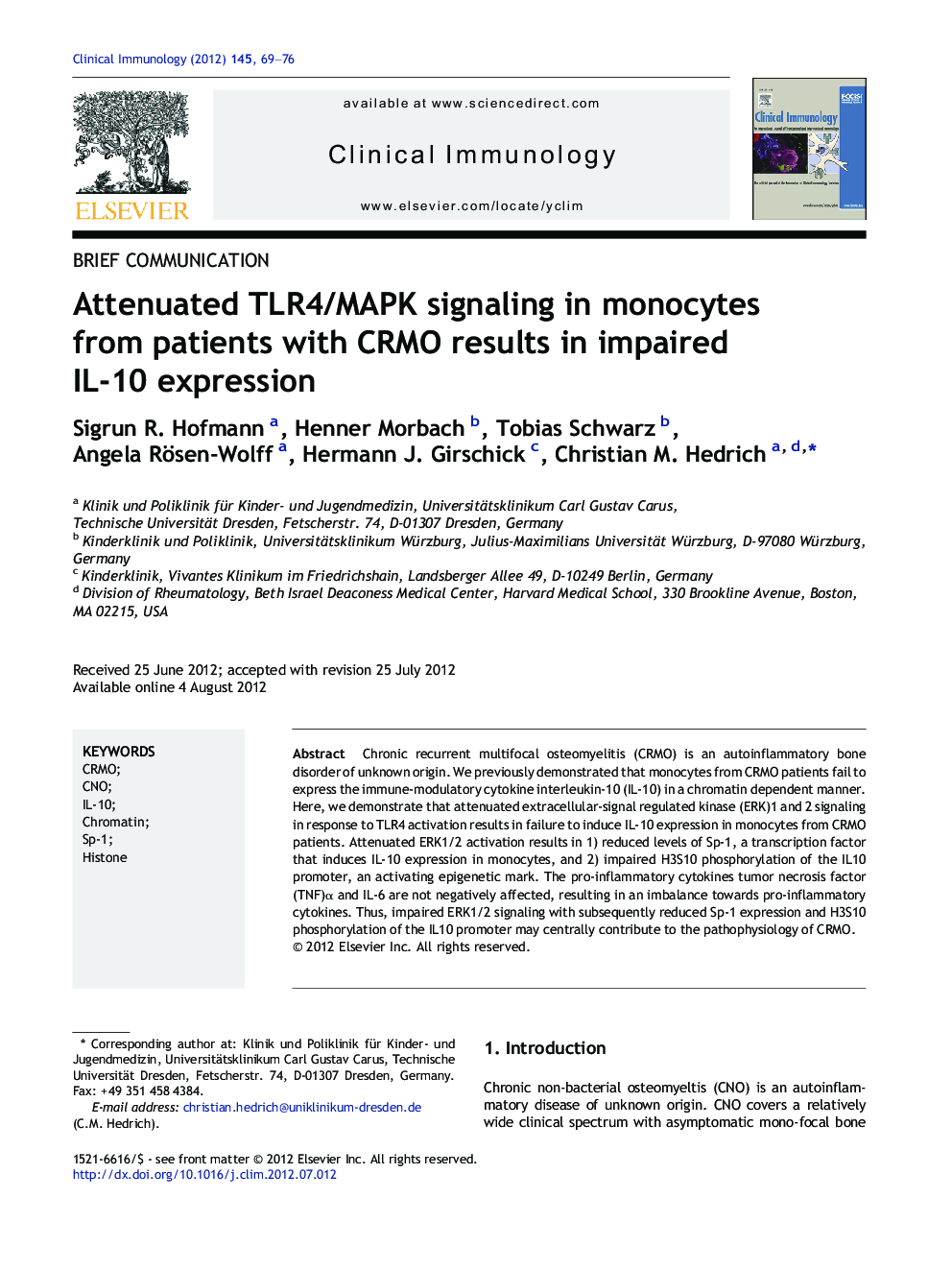| Article ID | Journal | Published Year | Pages | File Type |
|---|---|---|---|---|
| 3257145 | Clinical Immunology | 2012 | 8 Pages |
Chronic recurrent multifocal osteomyelitis (CRMO) is an autoinflammatory bone disorder of unknown origin. We previously demonstrated that monocytes from CRMO patients fail to express the immune-modulatory cytokine interleukin‐10 (IL‐10) in a chromatin dependent manner. Here, we demonstrate that attenuated extracellular-signal regulated kinase (ERK)1 and 2 signaling in response to TLR4 activation results in failure to induce IL-10 expression in monocytes from CRMO patients. Attenuated ERK1/2 activation results in 1) reduced levels of Sp-1, a transcription factor that induces IL-10 expression in monocytes, and 2) impaired H3S10 phosphorylation of the IL10 promoter, an activating epigenetic mark. The pro-inflammatory cytokines tumor necrosis factor (TNF)α and IL-6 are not negatively affected, resulting in an imbalance towards pro-inflammatory cytokines. Thus, impaired ERK1/2 signaling with subsequently reduced Sp-1 expression and H3S10 phosphorylation of the IL10 promoter may centrally contribute to the pathophysiology of CRMO.
► Attenuated TLR4-ERK1/2 signaling results in impaired Sp-1 recruitment to IL10. ► Disrupted TLR4-ERK1/2 signaling affects H3S10 phosphorylation of IL10. ► The pro-inflammatory cytokines TNFα and IL-6 are not affected.
